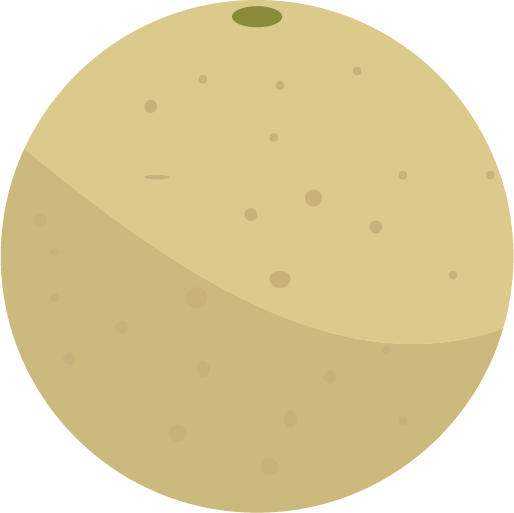Menu
At the thirty-fourth week of pregnancy, you are right at the heart of your third trimester. You are in your eighth month and it will take about 6 more weeks to complete the journey. Your baby is almost ready to enter the world, spending most of the time swimming in the amniotic fluid.
The thick, waxy cheesy coating (vernix) on your baby’s skin has begun to thicken. The coating will start to shed off into amniotic fluid in the coming weeks.
You may be able to see body parts like tiny hands and feet through your belly as your baby grows.
Your baby shuts those adorable eyes when he sleeps and opens them when he wakes up, and this activity helps your child establish a sleep schedule.
The thick, waxy cheesy coating(vernix) on your baby’s skin has begun to thicken. The coating starts to shed off into amniotic fluid in the following weeks. Scientists believe that swallowing the vernix in the fluid may aid in developing the baby’s intestines and stomach.
You may be able to see body parts like tiny hands and feet through your belly as your baby grows.
Your baby shuts those adorable eyes when he sleeps and opens them when he wakes up, and this activity helps your child establish a sleep schedule.
The uterus is now cramped. Your baby has become curled in the womb, causing their legs to bend towards the chest—not a comfortable position. Despite that, you will still feel your baby move around. Your bump changes shape as Junior moves. It is a beautiful sight to behold. Mothers should record these times and cherish them.
At thirty-fourth week, the amniotic fluid is at its highest volume surrounding the baby. The baby swallows, breathes, and moves in the amniotic fluid. Your baby is now receiving its last development spurt before the big reveal.
Meanwhile, your little one is not yet ready for the world. He is still premature. The lungs still cannot take in oxygen. Therefore, an early delivery at this point could cause some health issues. Further issues include yellowing skin and having difficulty eating and breathing. Nevertheless, they can still do well; the survival rate at 34 weeks is greater than 99%. The risk of disabilities and complications associated with prematurity is 5%.
If Junior is a boy, his testicles move from the abdomen to the groin this week. At birth, the genitals may look larger. A hormonal rush is likely responsible; it goes away after a few days. However, exceptions may still arise; 3 to 4 percent of babies born do not yet have the testicles in the scrotum.
Until now, your baby has had a waxy skin cover that is getting thicker. This week, the coating sheds off and enters the amniotic fluid. Your baby’s fingernails and toenails continue to grow; at this point, they would have reached the tips of their fingers and toes. Now the bones are strong, while the skull continues to get softer.
By the thirty-fourth week, the baby weighs 2146 grams. Junior now weighs as much as a cantaloupe. If you want to start to feel what it would feel like to carry your baby, try holding a bag of flour that is his current weight. Your baby could be as long as 18.19 inches.






At this stage, the uterus is around 5 inches above the belly button. Due to this, the baby moves head-down into the pelvis. This process is known as “engagement,” as the baby prepares for delivery.
At 34 weeks pregnant, you have 6 more weeks to complete your pregnancy journey.
Your uterus is still expanding, and you thought there was no more room. But there is, and it is about five inches above your navel at 34 weeks pregnant.
You’re probably not seeing as well as you used to.
That’s because your eyes are part of your body that can be affected by those bothersome pregnancy hormones wreaking havoc on your digestive tract and ligaments. An increase in fluid behind your lenses can cause them to temporarily change shape, making a few women more nearsighted or farsighted than usual. Wearing glasses rather than contact lenses may be more comfortable for you.
Fortunately, all of these changes are only temporary. There’s no need to change your medications yet because things should clear up as your eyes return to normal after delivery. However, keep in mind that certain severe vision problems lead to pregnancy complications(preeclampsia), so notify your physician if you notice a severe change in your vision.
Now that the baby has moved to the pelvis, there is more pressure on your bladder. That means you are going to visit the restroom more frequently.
Frequent urination occurs towards the end of pregnancy. The baby and the stomach are at their largest sizes, putting pressure on the bladder. Frequent urination also comes with leaking urine. Leaking urine can arise when coughing, sneezing, laughing, or engaging in physical activities.
You are coming into a season where you might have issues with seeing. The hormonal imbalance and not getting sleep may cause blurred vision. It is not permanent. However, if it comes with swelling, weight gain, and a headache, it is likely to be a sign of preeclampsia. In that case, meet your doctor.
Your breasts are becoming fuller and will be oozing colostrum now and then. Colostrum is the yellowish milk that will be their first meal in the outside world. It is rich in antibodies and will strengthen Junior’s immunity. You might need to wear bra pads for leakages and stains.
With the baby now in a tight place, a heavy load is in your pelvic. Walking now becomes difficult to do. Fatigue becomes frequent, and sleeping at night becomes a premium.
You might notice your legs and feet becoming swollen. At this stage, it is normal. Your body is getting bigger, causing body tissues to accumulate and retain more fluids. To reduce the swelling, try not to stand in one spot.
Now that the baby has moved to the pelvis, there is more pressure on your bladder. That means you are going to visit the restroom more frequently.
Frequent urination occurs towards the end of pregnancy. This is because the baby and the stomach are at their largest sizes, putting pressure on the bladder. Frequent urination also comes with leaking urine. Leaking urine can arise when coughing, sneezing, laughing, or engaging in physical activities.
You are coming into a season where you might have issues with seeing. The hormonal imbalance and not getting sleep may cause blurred vision. It is not permanent. However, if it comes with swelling, weight gain, and a headache, it is a sign of preeclampsia. In that case, meet your doctor.
Your breasts are becoming fuller and will be oozing colostrum now and then. Colostrum is the yellowish milk that will be their first meal in the outside world. It is rich in antibodies and will strengthen Junior’s immunity. You might need to wear a sporting bra for leakages and stains.
With the baby now in a tight place, a heavy load is in your pelvic. Walking now becomes difficult to do. Fatigue becomes frequent, and sleeping at night becomes a premium.
You might notice your legs and feet become swollen. At this stage, it is normal. Your body is getting bigger, causing body tissues to accumulate and retain more fluids. To reduce the swelling, try not to stand in one spot.
Be mindful of your sleeping position. As you go to bed this week, try sleeping on your side. This position keeps the blood flow to the placenta at the maximum. It also helps the mother against backache and reduces the chances of snoring. You might have to be careful with the salt content in your food for now. A moderate amount of salt helps your body to regulate the fluids.
Drinking enough water will help with the issue of constipation and bloating. It also keeps you hydrated.
Depression is likely to occur at this time. Anxiety, surging hormones, and societal pressure can lead to a state of sadness for you. If you happen to experience this, you might need to seek help. Talk to the doctor and use antidepressants. Even though the load in the pelvic is sapping your energy, you can reverse it. Try engaging in regular exercise. It will increase blood flow.
Calcium and Vitamin D are the nutrients to pay attention to this week. Your baby’s skull is still soft, and they would need more calcium. Eat foods that are high in calcium. Taking supplements might be necessary.
Birthing Movement: You might need to meet your doctor to learn about birthing movements and labor signs.
Yeast Infection: Fever, foul-smelling vaginal discharge, burning sensation while urinating, and pelvic pain are symptoms. Speak with your Ob-Gyn or midwife if you experience any of these. Your obstetrician will give you some baby-safe antibiotics to use.
Chronic Illnesses: Pregnancy can worsen chronic conditions. You should pay attention to the following symptoms: constipation, vaginal discharge, false contractions, hemorrhoids, dizziness, rash, preeclampsia, stretch marks, abdominal pressure, leg cramps, backache, trouble breathing, constipation, and bloating.
© Mindsmaking 2024